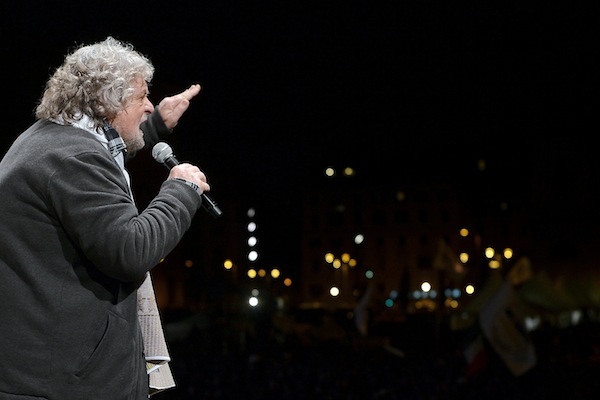It’s not a surprise that since the eurozone crisis began, support for eurosceptic parties has risen across the European Union. But behind the noise from leaders such as Nigel Farage and Beppe Grillo, how much of an impact will they have, particularly on next year’s European elections?
The party that stole the headlines in the past few weeks was Alternative für Deutschland, but compared with the rest of Europe, Germany is late to the party when it comes to eurosceptic movements. AfD belatedly provides the country with its own anti-hero party. Just 3 per cent of Germans currently intend to vote for AfD according to the latest poll, but another showed that 25 per cent would consider voting for a party advocating German withdrawal from the euro. The 5 per cent threshold needed to enter the Bundestag may yet prove too high, but it is eminently plausible that they may act as the election spoiler that forces the formation of a grand SPD-CDU coalition after September’s federal election.
If Germany is just embarking on its eurosceptic odyssey, then the recent experience of the rest of Europe suggests that support for AfD could have significantly further to rise. Support for such parties has reached unprecedented heights as recession, austerity and concerns over the integrity of national sovereignty have sapped voters’ confidence in their traditional parties of government. In most cases the uptrend began with the sovereign debt crisis in 2010, and the impact has been to double, and in some cases (Italy, Greece, Finland, the UK) triple, the combined support for those countries’ various eurosceptic parties.
For now, even where support for eurosceptic parties is at its highest, such as Austria and Italy, there is no suggestion that those parties will get their hands on power any time soon. Their biggest impact is yet to come, with the European elections in 2014 providing one opportunity to expand their power base.

Combined support for eurosceptic parties: Italy, Spain, Greece.

Austria, Finland, Denmark.

UK, Ireland, Sweden.
The charts above show voting intentions in national elections, which means these parties could garner a much higher proportion of the vote at the European level, where turnout is generally lower, and citizens are more likely to cast their votes in protest over domestic ills. It is at this point that we will understand what the voters of these countries really think about closer integration of the eurozone.
Richard Mylles is a political analyst at Absolute Strategy Research.






Comments